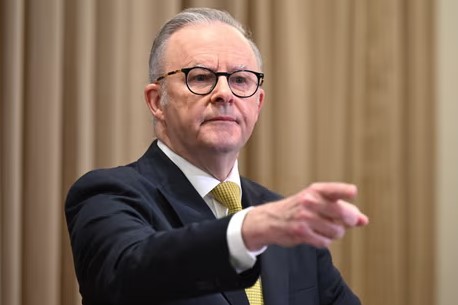The Australian government, under Prime Minister Albanese, is preparing a powerful new plan to strengthen its position in the global race for critical minerals. This move comes in response to sharp tariffs recently imposed by the United States under the Trump administration.
Australia Reacts to Tough New US Tariffs
These tariffs have placed heavy taxes on Australian exports like steel and aluminum—up to 25 per cent in some cases—and around 10 per cent on most other products. Only a few items, like some critical minerals and pharmaceuticals, have been spared.
Prime Minister Anthony Albanese’s team has called the new American policy “not the act of a friend.” In fact, some of Australia’s neighbors, including China, Malaysia, and Cambodia, have faced even tougher taxes—some as high as 49 per cent.
In response, the Albanese government is working quickly to put together a detailed plan that could help Australia bounce back. At the heart of this plan is a push to mine and process more critical minerals at home, instead of just digging them up and selling them overseas. The government does not want Australia to be seen only as a quarry—just a place where raw materials are taken from.
China’s Tan Suo Yi Hao Sparks Espionage Concerns in Australian Waters
Critical Minerals: Australia’s Hidden Treasure
Critical minerals are natural materials found in the ground. They’re used in making high-tech products like mobile phones, computers, solar panels, electric cars, and even medical equipment and defense tools. Some of the minerals also help power wind turbines and fiber-optic cables that carry internet data across the world.
Australia is lucky to have a lot of these minerals, buried deep underground across the country. But until now, most of them were sent to other countries to be processed into usable products. The Albanese government wants to change that.
The plan includes building new processing plants in Australia, creating jobs and adding more value before the minerals leave the country. A key part of this plan involves setting up a “strategic critical minerals reserve.” This would mean the government buys and stores important minerals from Australian miners. These could then be saved for local use, sent to allied countries like the US, or sold to the best markets around the world.
This kind of stockpile could give Australia more power when negotiating with trading partners. If other countries know that Australia holds a secure supply of these rare materials, they may be more willing to make fairer deals—like reducing those high tariffs.
AUKUS in Peril: US Struggles to Deliver 41st Virginia-Class Submarine Amid $3.2B Crisis
Environment, Allies, and Economic Pressure
While this sounds like a good plan on paper, there are a few challenges. Extracting and processing these minerals isn’t always clean or easy. Some methods involve toxic chemicals and create waste that can damage the environment and important cultural sites. Scientists and experts are warning that Australia must find better ways to mine and process these materials safely and responsibly.
The US isn’t the only country interested in Australia’s minerals. Over the last few years, Japan, Korea, the UK, and the European Union have also reached out to Canberra to talk about getting access to these critical supplies. Many countries are trying to reduce their reliance on China, which currently leads the world in refining and producing these minerals. Australia, seen as a trusted and stable partner, is in a strong position to step in.
However, building the infrastructure needed for full-scale processing at home will take time. Before any digging or building can start, sites must go through strict approval stages. That process can be slow, especially if environmental checks and land rights are involved.
Billions for Military Capability: Australia to Pump A$10.6 Billion Over Next 4 Years
Despite these hurdles, the Albanese government is already identifying top-priority sites and trying to speed things up. While the short term might be difficult, there is a clear path to expand Australia’s role in the global critical minerals supply chain.
Back in Parliament, the political opposition has shown some support for Albanese’s five-point plan to respond to the Trump tariffs. They agree on the need to toughen rules against dumping cheap foreign products into Australia and are expected to release their own trade policies during the election campaign. Albanese has made it clear that building a secure and independent critical minerals sector is now a national priority.
Meanwhile, some critics say Prime Minister Albanese should already have flown to Washington to meet with President Trump in person. They believe a face-to-face meeting could help Australia make its case and protect the country’s economic interests.
With fears of a global recession growing, many are watching closely to see how these new trade tensions play out. The next few weeks could be crucial as the Albanese government prepares to release its full critical minerals strategy, and as discussions with the US and other global partners continue behind the scenes.

